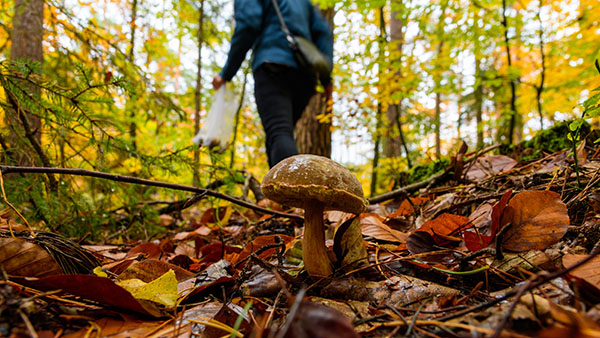
Setting up your food stockpile doesn't mean simply filling your pantry with survival foods; you also need to make your supply last for a long time. Take measures to prevent spoilage and keep your supplies safe from potential looters. (h/t to Survivopedia.com)
Air and moisture
When stored in proper conditions, dried foods such as grains can have a shelf life of more than 30 years.
Before storing supplies like dried grains, establish the moisture content of the dried foods you want to store using a digital moisture meter. Note that the maximum moisture content should not exceed 10 percent – anything higher won't store properly.
This step is necessary because bacteria, mold and insect infestation (e.g., hatching eggs or multiplying) require moisture to develop.
Prevent moisture build-up in your grains by adding oxygen absorbers to your food containers. These items can also help stop the oil in food from going rancid, which helps prevent the growth of fungi. (Related: A crash course in food choices for long- and short-term survival.)
Heat and light
Once exposed to heat, the shelf life of your supplies may be shortened. To prevent heat from destroying your supplies, store items on shelves or pallets instead of putting them directly on the floor. Leave a bit of space around containers and jars for ventilation.
Install a small fan with a net for insects and filters to keep your pantry well-ventilated. This helps prevent "sweating" inside the cans and protects all metal containers from rust.
Keep the temperature inside your pantry between 40 and 60 F. Anything higher than 60 F may affect the nutritional value of food. As the temperature rises, your supplies will spoil faster.
Overall, your food stockpile should be kept away from sunlight to avoid heating up and deteriorating.
Canned items exposed to sunlight may heat up, which can make the air in the headspace expand. This could break lids or seals open, allowing microorganisms to contaminate the food inside.
Jars may also explode, making a mess and spreading contaminants all over your pantry. Exposure to sunlight can also make foods with fats or oil go rancid faster.
Insects and rodents
When storing grains, note that insect eggs may be hiding inside containers. Insects can survive in an environment with 40 to 80 percent humidity. To reproduce, insects require temperatures higher than 70 F.
Various insects that can cause food spoilage won't survive below 50 F. To keep your supplies insect-free, use oxygen absorbers or freeze the grains.
Freezing grains will kill live insects but not their eggs. To get rid of insect eggs in grains, freeze the grains again after 30 days.
Alternatively, you can buy grains that are pre-cleaned. If you do, check the grains for contaminants before storing them in your stockpile.
Rodents are attracted by the smell of food particles clinging to the outside of containers or on the floor of your pantry. Keeping your pantry clean is the best way to keep out mice and other rodents.
Before storing items in your pantry, wash all containers with soap and water, then dry completely before storing.
If mice have already gotten into your pantry, follow the tips below to get rid of them:
- Seal cracks or holes in the walls or flooring of your house. Start with your pantry, then search the rest of your home to cover all potential entry points.
- Place traps in your pantry and check them regularly.
- Don't store anything in cardboard boxes, which rodents can easily get into.
- Use rodent-proof containers. While mice can eat through almost anything, they can't get into glass, metal or heavy-duty hard plastic containers.
Keep your pantry safe
A prepper's pantry should normally be kept out of sight, but it pays to keep it secure in case of potential looters.
Below are some suggestions to keep your supplies safe:
- When designing your pantry, make sure it will be well-hidden, regardless if you're building an indoor or outdoor pantry.
- If you're planning to have an outdoor pantry, build a cellar away from your main property.
- Install a sturdy door with a heavy-duty locking mechanism.
- Set up a perimeter alarm.
- You can also build a natural perimeter around it or hide it using plants that grow in your area.
Before SHTF, follow these tips to protect your survival stockpile from pests and looters.
Sources include:
Please contact us for more information.























